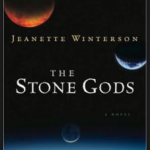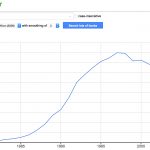The New, New, New Philology
Matt CohenIn this review of Rethinking the New Medievalism, Matt Cohen ponders the significance of philology's ongoing period of "reflection, [...] refraction, and revisitation." Against the backdrop of contemporary shifts in the humanities, more generally, Cohen sees opportunities for medievalists to intervene, bringing with them both clarity and innovation to fields in a state of fluctuation.
Not a case of words: Textual Environments and Multimateriality in Between Page and Screen
Élika Ortega
In this essay, Ortega departs from Ulises Carrión’s notion of book as a “spatio-temporal entity” which goes beyond verbal language, in order to demonstrate how hybrid works (or "textual environments") such as Amaranth Borsuk’s Between Page and Screen (2012) may create “new genres and material and poetic expressiveness.” By drawing on Rita Raley’s “TXTual practice,” Ortega also demonstrates how the "material dynamics" displayed by these works decisively contributes to the generation of meaning.
What [in the World] was Postmodernism? An Introduction
David Ciccoricco
An Introduction to the gathering.
“The End”
Brian McHale
The closing keynote at the Summer 2015 University of Otag0 symposium, "What [in the World] Was Postmodernism," also closes the present collection, here in ebr (December 2016). In December of 2019, McHale's Afterword, Ciccoricco's Introduction and essays by Simon During and Amy Elias will be included in Post-Digital: Dialogues and Debates from electronic book review (Volume 2).
Practicing Disappearance: A Postmodern Methodology
Neil Vallelly
In this essay, Neil Vallelly answers the question “What is postmodernism?” by demonstrating how disappearance, as envisaged by Jean Baudrillard, “lies at the heart of postmodern theory.” Vallelly also argues for the critical value of postmodernism’s traces in contemporary literature and suggests the adoption of a "methodology that embraces disappearance."
What is Metamodernism and Why Bother? Meditations on Metamodernism as a Period Term and as a Mode
Alexandra E. Dumitrescu
Alexandra Dumitrescu’s essay describes the development of metamodernism in New Zealand and presents metamodernism as an interrogation of “modernist uprootedness or postmodern drifting.”
From Master(y) Narratives to Matter Narratives: Jeanette Winterson’s The Stone Gods
Damien Gibson
In an attempt to re-materialize postmodernism, Damien Gibson provides, by drawing on material ecocriticism and on the concept of “narrative agency,” a critical posthumanist reading of Jeanette Winterson’s The Stone Gods.
The Historical Status of Postmodernism Under Neoliberalism
Simon During
Simon During proposes to unravel the “layered” history of postmodernism in New Zealand. In so doing, the author of this essay treats postmodernism as “an event rather than a period” and describes postmodernism’s development in the epoch of neo-liberalism.
“Not Going Where I Was Knowing”: Time and Direction in the Postmodernism of Gertrude Stein and Caroline Bergvall
Lynley Edmeades
In an essay spanning modernist and postmodernist poetics, Lynley Edmeades demonstrates how postmodern poetry cultivates “present-ness” by drawing on Lyotard’s concept of “constancy,” Gertrude Stein’s notion of “continuous present” and Caroline Bergvall’s adherence to “non-linearity.”
Nominalisms Ancient and Modern: Samuel Beckett, the Pre/Post/Modernist?
Holly Phillips
While describing the work of Beckett as deeply influenced by nominalism, Holly Phillips explores “ineffable permutations of intellectual history” and demonstrates how medieval philosophy has deeply influenced twentieth century literature. Simultaneously, Phillips undermines the idea that nominalism’s dismantlement of universals has finally been accomplished by postmodernism.
The Uses of Postmodernism
Jacob Edmond
Jacob Edmond argues that while postmodernism might be useless as a theoretical concept or periodization, it nevertheless illuminates changes, both local and global, in the final decades of the twentieth century. Edmond analyzes the uses of postmodernism in the United States, New Zealand, Russia, and China. He shows how the various and even contradictory uses of the term postmodernism allowed it to represent both sides in the unfolding tension between globalization and localism in late twentieth-century culture.
Processing Words, or Suspended Inscriptions Written with Light
Manuel PortelaIn this review, Manuel Portela considers Matthew G. Kirschenbaum's Track Changes in light of a "general computerization of the modes of production of writing."
A Riposte to Jeanette McVicker’s Thinking With the Planet
John BruniIn response to Jeanette McVicker's review of The Planetary Turn, John Bruni examines what it means to theorize a sense of the planetary.
Thinking With the Planet: a Review of The Planetary Turn: Relationality and Geoaesthetics in the Twenty-First Century
Jeanette McVickerUsing recent events of planetary significance as a point of departure, Jeanette McVicker reviews The Planetary Turn: Relationality and Geoaesthetics in the Twenty-First Century, edited by Amy J. Elias and Christian Moraru.
An Aesthetics of the Unsaid
Andrew Lindquist
Andrew Lindquist reviews Michael LeMahieu's Fictions of Fact and Value, examining the influence of logical positivism on American literature of the postwar era.